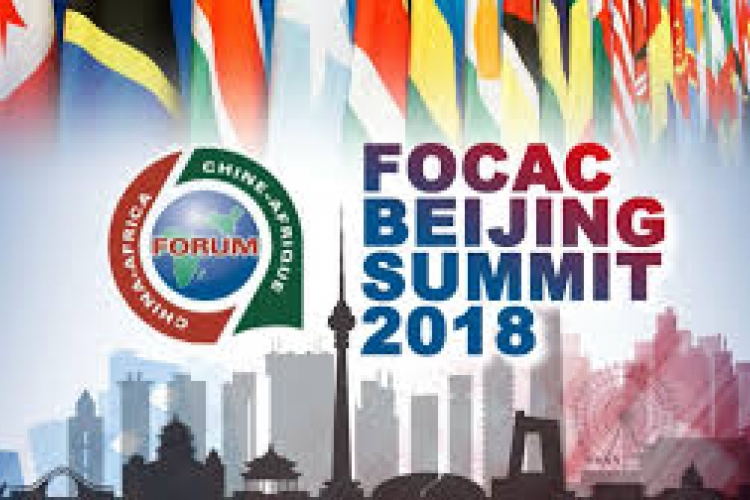CHINA – AFRICA FORUM
IN NEWS
Chinese President Xi Jinping announced a hefty $60 billion package for Africa at the inaugural of the Forum on China-Africa Cooperation (FOCAC). At the FOCAC, a triennial assemblage of African and Chinese leaders, the 50-plus African leaders. Chinese hosts charted big plans to build roads, power plants, and railways and much more in Africa.
FORUM ON CHINA-AFRICA FORUM
The Forum on China–Africa Cooperation (FOCAC) is an official forum between the People's Republic of China and all states in Africa (with the exception of Eswatini, the last African state with which the PRC currently does not have diplomatic relations, since it recognizes Taiwan). There have been three summits held to date, with the most recent having occurred from September 3-4, 2018 in Beijing, China. The first summit was held November 2006 in Beijing. The FOCAC Summit usually reflects China’s current priorities in foreign strategy.
OUTCOMES OF THE THIRD SUMMIT
Two important documents – the Beijing Declaration and the Beijing Action Plan (2019-2021) – were passed at the 2018 Beijing Summit of the Forum on China-Africa Cooperation (FOCAC).
The Beijing Declaration fully reflects the consensus of both sides on major world issues and demonstrates the determination of both China and Africa to unite, share opportunities and meet challenges.
The Beijing Action Plan, meanwhile, sets a schedule for pragmatic cooperation in various fields over the next three years. It shows the firm will of China and Africa to implement the eight initiatives, and depicts a new blueprint for win-win cooperation and common development.
CRITICAL ANALYSIS OF FORUM
- The concern about China weaponizing loans through a debt-trap diplomacy is actually not misplaced. The model China has used over time has been contracting and not investing, where China EXIM bank and private banks finance State-owned companies to deliver infrastructure projects then African countries pay back in form of commercial and concessional loans. Since they never invest in these projects, they are never concerned about thorough scrutiny of the commercial viability of these infrastructure projects. And this has been the major downside effect of China’s infrastructure-driven economic model in Africa - more than half of Chinese infrastructure projects in developing economies even outside Africa are underperforming.
- A duty-free access for majority of agricultural products would have given African farmers the confidence to invest in improving yields and spur creation of agricultural value chains linking farmers to storage, processing and logistics facilities.
- The “new model of international relations,” or the “democratization of the international relations,” has long been the focus of China’s effort to reform the international system to give China and its allied developing countries a bigger voice and more power. By tying African countries into that narrative, China is consolidating the foundation for its bid to shape a new international order.
- China’s traditional approach toward Africa on political issues is not coercion oriented but remuneration oriented. Africa’s impact on China’s core national interests is minimal; therefore, it does not justify a coercive approach.
- The Chinese capacity building borders the export of Chinese ideology, albeit in a more implicit and indirect form.
IMPORTANCE OF AFRICA FOR CHINA AND INDIA
- One of the reasons for India and China to strengthen their engagements with African countries is the availability of this region as a big market for their products.
- Oil needs are another factor for New Delhi and Beijing to focus on having close relations with the region. This continent has huge energy reserves, with Kenya having one of the largest crude oil refineries while South Africa comprises 3 per cent of African coal reserves.
- Mozambique has one of the world’s richest off-shore natural gas reserves and massive deposits of coal. As result, China and India are competing with each other to secure African oil and other natural resources to boost their economies.
- It is not just trade. India also sees African countries as playing a vital role in promoting peace and security in the Indian Ocean. New Delhi is deeply concerned that China’s Belt Road Initiative (BRI) will have serious security implications in the view of the fact that this project will provide China access to ports from the South China Sea to the eastern coast of Africa.


 IAS -2025 Prelims Combined Mains Batch - III Starts - 14-04-2024
IAS -2025 Prelims Combined Mains Batch - III Starts - 14-04-2024